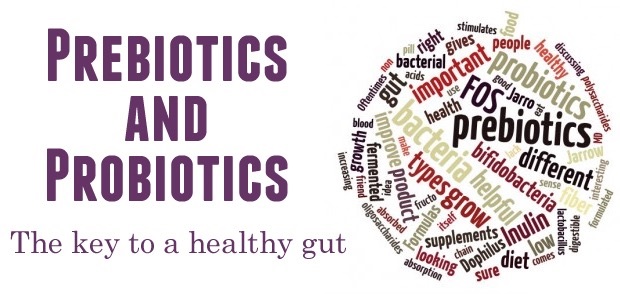We are sure that most of you must have heard of both prebiotics and probiotics. Remember Yakult? But do you know what Pre and Probiotics really are? The two might have similar sounding names but their properties and functions couldn’t be more different. The more commonly known of the two are ofcourse probiotics.
By the means of this article, what we want you to know is how these pre and probiotics affect our health and well being and how to take the full benefit of these amazing products!
Probiotics
Let us start with a basic definition of what pre and probiotics really are, shall we? So essentially, Probiotics are live bacteria that are introduced into the body and are present in things food products like yogurt, pills etc. Probiotics are usually referred by doctors to people who are on antibiotic courses, so as to help combat the ill effects of the medicines. Since antibiotics mostly affect your digestive process, probiotics help a great extent in putting a stop to it.
There are however certain issues that arise when you use probitics. Probiotics tend to be quite delicate when it comes to being affected by the environment. The bacteria in probiotics can easily get killed by stomach acid or heat before our body has time to digest them.
Another problem that comes with consuming probiotics is that one can never say which strain of bacteria is beneficial to whom. If one strain is good for a certain person, then it is not necessary that the same strain would prove beneficial to another person.
Prebiotics
Prebiotics are basically plant fibers that help provide nourishment to the good bacteria that are already present in the colon. They help a tremendous amount in increasing the good-to-bad bacteria ratio by letting the good bacteria grow. It has been scientifically proven, that this very ratio of good to bad bacteria affects your health to a great extent, and helps you maintain overall health and also helps in keeping your stomach as well as your brain healthy.
It is also known that people, who consume more prebiotics, face fewer issues like stress, anxiety and depression. The best part about prebiotics, however, is the fact that they are comparatively a lot less delicate than probiotics. They cannot be destroyed or affected by heat or even bacteria.
The Difference:
- Prebiotics are plant fibers that provide nourishment to the good bacteria in your gut and act as a fertilizer to them whilst probiotics are themselves live good bacteria that are present in the likes of yogurt and other dairy products.
- Prebiotics are more stable and are not affected by their environments like heat or the effect of bacteria while the bacteria in Probiotics tend to get killed when exposed to the heat of stomach acid.
- There is a wider range of health benefits when it comes to Prebiotics as compared to probiotics.
Both prebiotics and probiotics provide health benefits, and they can even be taken together without worries. The only problem with probiotics is that they have a hard time surviving any extreme environments. Only a small amount of what you consume is able to make it to your gut and help you out. Prebiotics, however, are more stable and provide greater benefits to your body.
We hope that by now we would have been able to clear any queries that you might have regarding both these amazing products, and that you would be able to make up your mind as to which one of these (or both) would be more beneficial to you. Afterall, the only thing that we want is for all you lovely people to be healthy and happy.

